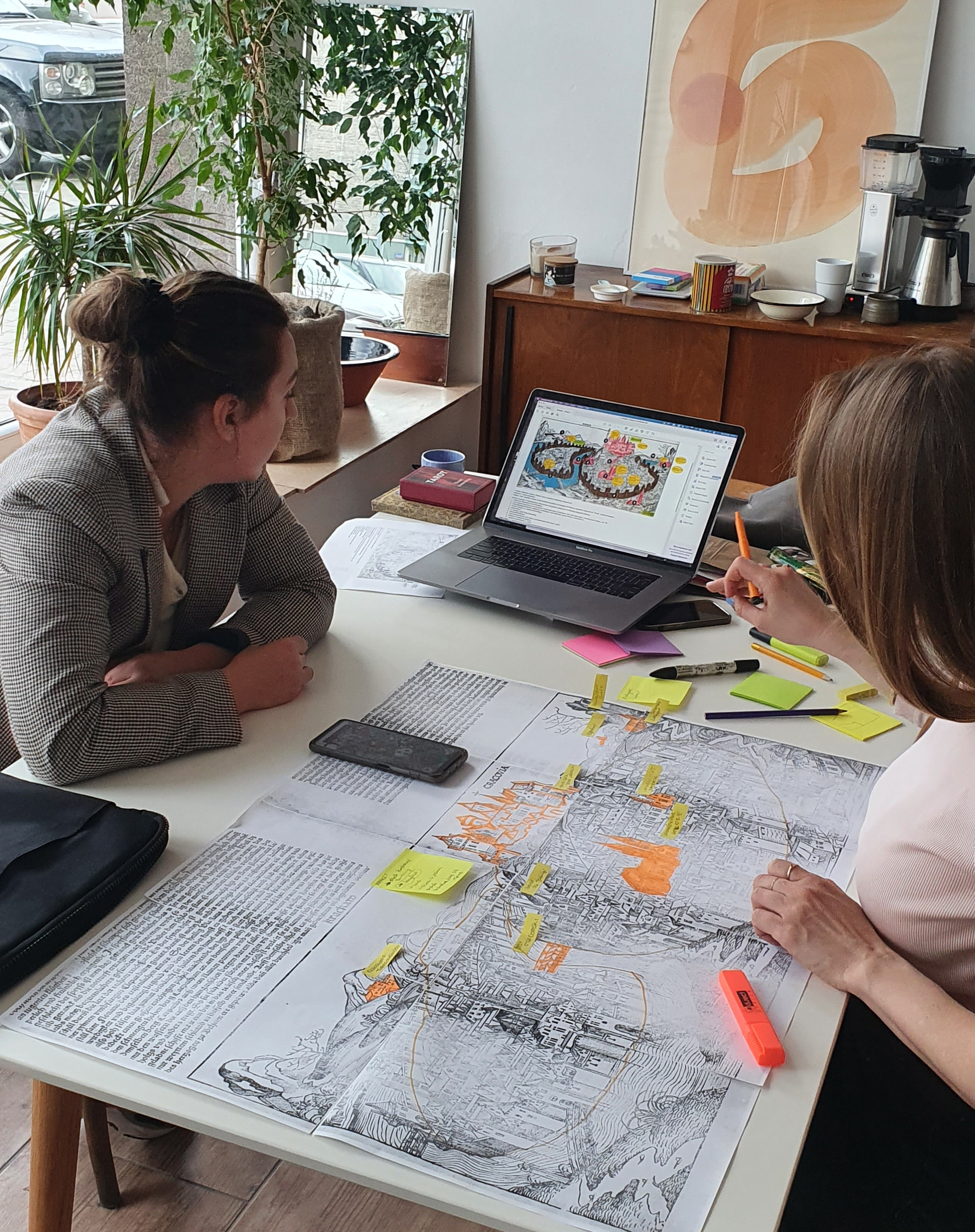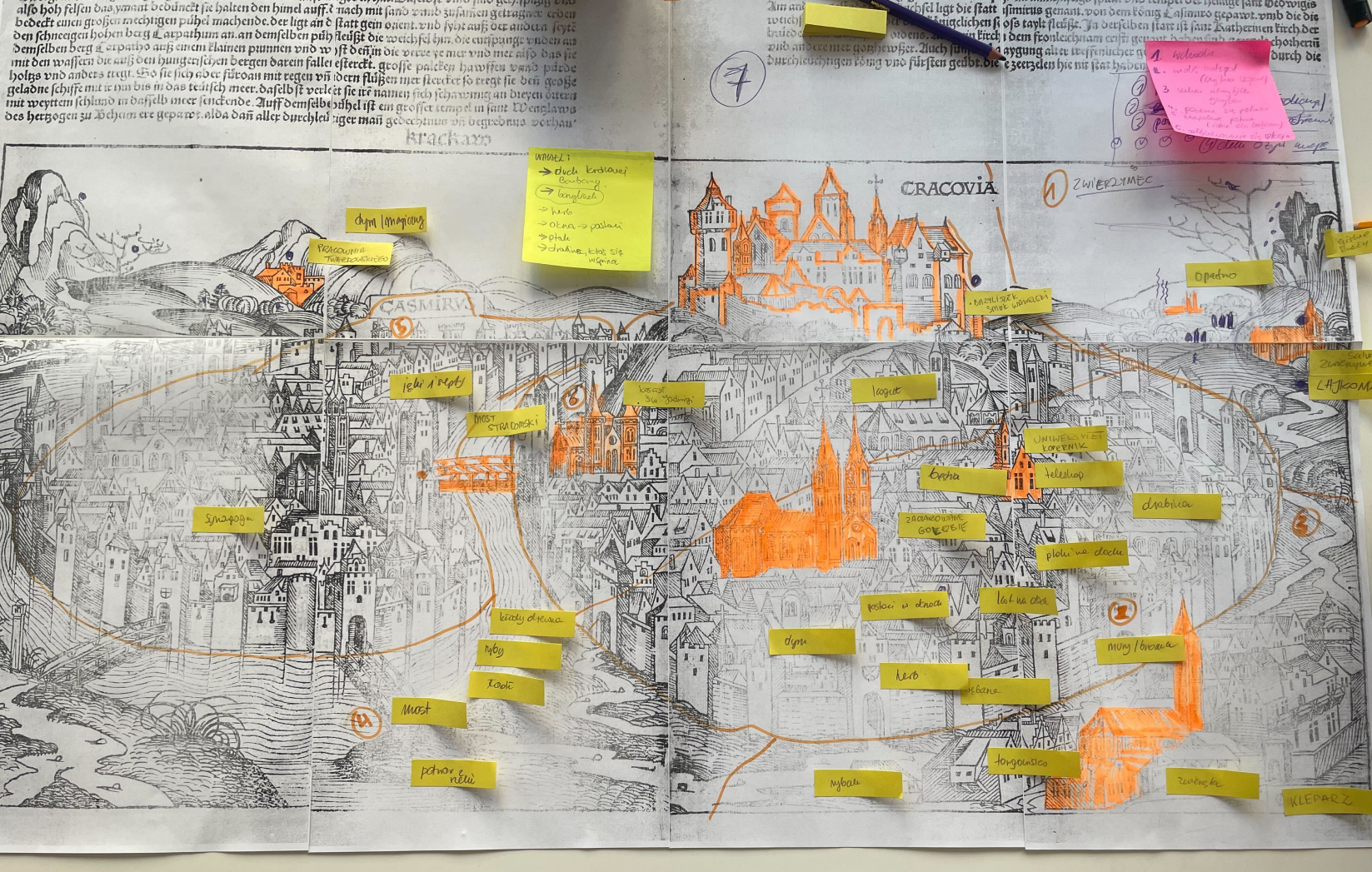Paracosm is a museum-focused mobile game concept that blends archival maps with mindfulness.
About this project
Many visitors often feel disoriented or lose interest when exploring museums. Especially when faced with historical artifacts like maps and coins. Our goal was to design an engaging experience that would ignite curiosity and encourage people to dive into the fascinating stories of the past, uncovering origins and secrets along the way.
This mobile game concept was born during the "Coding DaVinci" hackathon, which challenged participants to create innovative products that unlock the creative potential of digital heritage.
My responsibilities
Team leader
UX design & prototyping
Animations
Results
Interactive prototype and concept for the mobile game
The Story
The challenge during the Coding DaVinci hackathon was to create innovative solutions for reusing and promoting a diverse range of archival collections and data - such as photographs, reproductions of paintings, engravings, and more.
My team and I were particularly drawn to a medieval map of Kraków from the manuscript "Liber Chronicarum", made available by the National Archives in Krakow. This chronicle, published in 1493, is one of the oldest in the world. Its beautifully illustrated pages, created by Hartmann Schedel, depict a fantastic view of the world at that time. However, the true richness of maps reveal itself when you explore their intricate details up close. This sparked our curiosity: how could we encourage viewers to engage deeply, explore those hidden details, and discover the fascinating stories embedded within old maps?
My team and I were particularly drawn to a medieval map of Kraków from the manuscript "Liber Chronicarum", made available by the National Archives in Krakow. This chronicle, published in 1493, is one of the oldest in the world. Its beautifully illustrated pages, created by Hartmann Schedel, depict a fantastic view of the world at that time. However, the true richness of maps reveal itself when you explore their intricate details up close. This sparked our curiosity: how could we encourage viewers to engage deeply, explore those hidden details, and discover the fascinating stories embedded within old maps?
Original engraving from "Liber Chronicarium" with the oldest accurate map of Kraków
"It's like Where's Wolly but for museums"
We began by researching a variety of engaging concepts and websites designed to encourage people to explore intricate objects and maps in a playful, investigative way, much like the classic "Where's Wally" books.
An interactive experience of "The Garden of Earthly Delights" by Bosch
https://archief.ntr.nl/tuinderlusten/en.html
The "Hidden folks" game was our favorite example of the hidden-object game genre. I absolutely recommend playing :)
Mindful wandering through historical engravings
Our team's final concept was an interactive mobile game where users browse detailed medieval maps on their phones and explore richly illustrated cities filled with hidden thematic elements. The game falls within the "hidden object" genre, inviting players to find and collect items hidden across the map. As users earn points, they unlock new map areas, dive deeper into the history behind the objects, uncover fascinating urban legends, and build their own bestiary of mythical creatures. Beyond the gameplay, we designed the experience to be meditative and calming — a way to enjoy mindful wandering while traveling back through time.
We also dedicated half a day as a team to decide how to break up the map into levels, which elements to highlight, and what unique characters would need animation to enrich our gameplay experience.


The map at the beginning of the game
The final, fully uncovered version of the map with all the regions already explored
Watch the final demo of the gameplay
Reflections
I absolutely love hackathons — they challenge you to think creatively and work efficiently under tight constraints. There’s something incredibly rewarding about collaborating with a team to develop an idea in such a short timeframe. Although we didn’t receive any awards during the event, my colleagues and I remain passionate about this concept. We're still eager to apply for a grant to bring our game to life.

